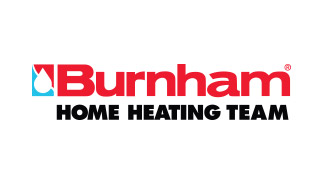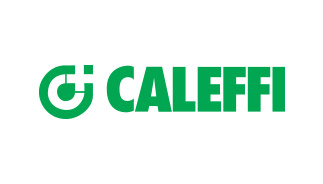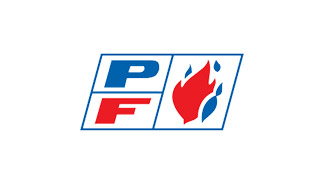Published on
April 15th, 2024Why Does My Water Heater Make Noise?
Why does my water heater make noise? It’s a common enough question but not specific enough to diagnose a cause. In general, water heaters and all mechanical devices make some noise, although most are quiet. People often question the noises produced when they are strange or out of the ordinary, like hissing, popping, or rumbling sounds.
Sometimes, the sounds you hear are harmless, but other times, they can indicate a need for maintenance or cleaning. Discover the most common causes of strange noises from your water heater and when they are cause for concern.
Why My Water Heater is Making Noise: 6 Common Causes
1. Sediment Buildup
Sediment buildup is the most common cause of water heater noises. It can produce popping or crackling sounds from bubbles trapped under the sediment or rumbling and banging because of overheating because of sediment insulation.
Hard water, with its high concentration of minerals such as calcium and magnesium, is a significant contributor to sediment buildup. As the water heats up, the minerals form solid particles that settle at the bottom of the tank. Over time, the sediment layer grows thicker, creating an additional insulating or barrier layer between the heating element and the water.
Sediment buildup leads to overheating, reduced capacity, and higher energy bills. To avoid the noises and problems associated with the issue, contact Calray Boilers for tank flushing. Periodic flushing of the water heater can remove accumulated sediment. If the problem is severe, you may need to invest in descaling products.
A single tank flush is likely not enough for severe sediment buildup to eliminate the noises or all the sediment. Regular tank flushing is beneficial in severe situations and as a preventative, especially if your property has hard water.
2. Faulty or Loose Valves
Water heaters have several valves that play an integral role in maintaining water pressure and temperature. Your water heater might make noise because of a faulty or loose valve. Problem valves can cause several noises, from ticking to whistling. Each noise can hint at the potential problem valve, but you still need an expert to diagnose the issue.
Ticking and tapping noises are the most common noises associated with valve problems. With loose or malfunctioning valves, the change in water pressure as they open and close can cause a repetitive ticking or tapping sound, which is usually louder the closer you get to the problem valve.
A whistling or screeching sound usually indicates restricted water flow through the valve. Flow issues can have many causes, but they are likely caused by sediment, age, or wear and tear.
Depending on the cause of the faulty or loose valve, it likely needs to be replaced. The cost for the replacement depends on the type of valve. For example, a gas valve replacement can cost between $150 and $550. Contact Calray Boilers for a more specific estimate.
3. Leaks
Leaks can cause a water heater to make noise. Even small leaks in or around your water heater can cause noticeable sounds, like hissing or dripping. Leaks always require immediate attention. They typically signal more severe problems, such as wastewater, and potentially create unsafe conditions.
A hissing or sizzling sound usually indicates a tank leak. The sound stems from water dripping onto the hot gas or electric heating element. The problem with this type of leak, especially when it is slow, is that the water quickly evaporates, leaving little evidence of the damage.
A dripping or tapping sound can indicate a leak from a valve or pipe leading from the water heater. Depending on the severity, building owners or staff may notice pooling before they notice the noise.
Leaks require immediate and professional attention. The issue wastes resources, but it also presents safety and system hazards. Depending on the severity of the leak and the system’s heating source, a leak can create electrocution and shock risks. If the leak is a long-term problem, it can cause significant corrosion around the water heater and its components.
4. Loose Straps and Surges in Water Flow
Other common culprits for your water heater’s noise are loose straps and surges in water pressure. Pipe straps secure water pipes to walls or other structures to minimize vibrations and movement. Over time, these straps can loosen because of the subtle vibrations from the water heater’s operation. When the straps loosen, they allow the pipes more freedom, which usually results in clanging, rattling, or knocking sounds when water is running.
Severe or significant changes in water pressure can also produce knocking or banging sounds. Water hammer occurs when the opening or closing of a fixture or valve creates a sudden and powerful pressure surge. The surge sends a shockwave through the pipes, resulting in violent shaking and collisions with walls, straps, and other pipes. To resolve water hammer and pressure issues, you likely need a pressure regulator or system arrestors, which act as shock absorbers.
5. Failing Heating Element
Another potential cause of your water heater’s noise is a failing electrical heating element. In the best cases, a heating element can last the water heater’s lifespan, typically 10-15 years. That said, mineral buildup, corrosion, and internal damage can all reduce the life expectancy of the heating element and the system.
Electric water heaters rely on one or two heating elements submerged in water. These elements may cause noises when overheated or damaged. The most common noises include buzzing and humming, typically caused by erratic electrical flow, or sizzling and crackling, caused by water interacting with a scorching hot surface.
Why Does My Water Heater Make Noise, and How Can I Get It to Stop?
Call Calray Boilers
Why does your water heater make noise? The answer depends on the situation. Calray Boilers can inspect your water heater and assess the noises to determine the underlying cause of the problem. Depending on the severity of the problem, you might need a new unit. To avoid future problems, call our team at 212-722-5506 to ask about our annual service contracts, which include regular maintenance and inspections.










